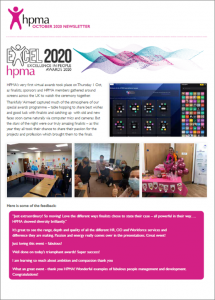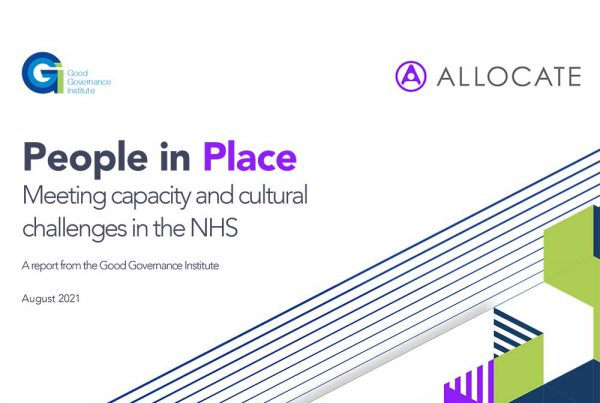Featured article in HPMA Newsletter – October 2020
Shona Blackhall, DevelopMe+ Product Manager Allocate Software Covid-19 caused wide-scale disruption within health and care, revealing the skills of its workforce to be more vital than ever. This disruption has seen positive changes in the way trusts use technology for training and development and has now highlighted the need for new technology to manage skills data for greater efficiency and effective management and delivery of staff resources. Allocate Software Product Manager Shona Blackhall shares some ideas around future innovations.
The Covid-19 pandemic has turned lives upside down. So many families and individuals have experienced loss and it has had such a profound effect on the way we live our lives, interact with each other and go about our daily work. Nowhere more so than in health and care organisations. Health technology has long been widely available but adoption has often been sporadic and for many practitioners, some health technology has felt like an unnecessary solution to a problem. The notion of certain disciplines engaging in consultations with patients online might have seemed bizarre, even inappropriate just a few months ago. However, when faced with the imperative to adopt to new ways of working, health staff have taken up the challenge and excelled in technology adoption to continue to deliver outstanding service for patients and service users. Initial consultations have been carried out using live video calls, and team meetings conducted via Microsoft Teams and Zoom, with staff working very effectively from home alongside their usual clinical settings. Online technology has also played a key part in enabling continuing professional development and training for clinical staff. The dynamic nature of the NHS workforce means there is never really downtime when it comes to individual learning and development. Training has to continue in order to keep patients, and staff, safe; Covid-19 or not. A surprisingly high percentage of courses can be delivered online, with only a minority requiring trainers and trainees to be together in a physical space. This huge shift in delivery process has of course required a large scale evaluation of existing course content and delivery by training providers, with sweeping changes to enable effective online learning. The old adage, ‘needs must’, holds true. When forced to consider new ways to use technology the NHS has become an exemplar for change. Many other industries and sectors may learn from this huge public-sector organisation that has proved itself to be highly agile, innovative and adaptable…
Download the newsletter to read the full article – continued on page 11






